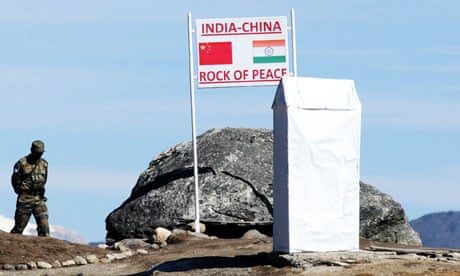It took just one little map to create a regional diplomatic dispute.
The map, in China's newly designed passport, claims ownership of the entire South China Sea – parts of which are also claimed by Taiwan, the Philippines, Vietnam, Brunei and Malaysia – as well as disputed areas on the China-India border and two Taiwanese tourist destinations.
The Philippines, Vietnam, India and Taiwan have all vehemently protested against the new microchip-equipped passport, which essentially forces neighbouring countries to validate China's position on contested regions.
Vietnam and the Philippines lodged formal complaints last week with Chinese embassies in Hanoi and Manila, respectively. India's external affairs minister, Salman Khursid, called the map "unacceptable".
"China has ignored the truth and sparked disputes," said a statement from Taiwan's mainland affairs council.
Shi Yinhong, an international relations professor at Renmin University in Beijing, warned the row could have long-term consequences.
"Especially in the East and South China Seas, both sides have taken a confrontational approach," said Shi. "This kind of situation will have a long-term impact on east Asian security and the relations between these countries."
In addition to demarcating the potentially resource-rich, 3.5m sq km South China Sea as Chinese territory, the map also encompasses the Arunachal Pradesh and Aksai Chin regions on the border with India (the source of 15 failed negotiations between the two countries) and depictions of two popular tourist sites in Taiwan – Sun Moon Lake and Qingshui Cliff.
Notably, it does not show the disputed Diaoyu Islands in the East China sea (called the Senkakus by Japan, which has repeatedly laid claim to the islands, prompting riots in Chinese cities last month).
Some countries have found creative ways to address the issue. Vietnam has refused to stamp the new passport at border crossings, opting to staple visas to its pages instead. The Indian embassy in Beijing has been stamping the passports with another map depicting the two disputed Himalayan regions as India's territory.
Bruce Jacobs, a professor of East Asian studies at Monash University in Australia, said the map underscored China's increasing boldness in laying claim to the disputed territories, adding that the country lacked institutions such as a free media that could keep its foreign policy decisions in check.
China sent maritime surveillance ships to a string of disputed islands by the Philippines in the spring, leading to protests in Manila and high-level diplomatic complaints.
"In some ways it's the balance of power theory: one nation gets too big, and other nations get together to oppose it," he said. "If anything I think it's counterproductive for the Chinese, but I don't think they have the feedback mechanisms to tell them that."
Zha Daojiong, an international relations expert at Peking University, said the real reason why Chinese authorities decided to print the map on passports is difficult to discern. "We have different agencies, different individuals," he said. "Sometimes people assume it's all very well co-ordinated, but that may not always be the case."







Comments (…)
Sign in or create your Guardian account to join the discussion